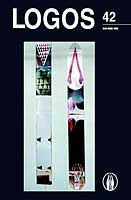NEBŪTIES PROBLEMA
The Non-Being Problem
Author(s): Leonid KarpovSubject(s): Philosophy
Published by: Visuomeninė organizacija »LOGOS«
Keywords: Being; non-being; nothing; thing; consciousness; unconsciousness; God; Satan; Lucifer
Summary/Abstract: This paper is dedicated to the problem of non-being. The metaphysical category of non-being is rather indefinite because it has practically not been studied by scholars and philosophers. This situation springs from specific features of European culture emphasising existence and life, unlike Egyptian and Tibetan cultures. To define the category of non-being means to set its place within the context "God - being", i.e. to find out the relations between the mentioned concepts. Second, we need to clarify the implication of nothing that underlies being and non-being. For the Christian religion, God created the Universe from nothing that separates Him from it. In a sense, He is transcendent, beyond space and time. Before the Creation, just God existed. It signifies that even nothing was created by the Lord. In turn, created nothing must be understood as an absolute absence. The transcendence of God implies that He is not present in our world. In other words, God is not identical to nothing as an absolute absence. He is nothing in the sense of substance, i.e. He is Nothing producing nothing (absolute absence) and the world. Divine Nothing exists in the sense pointed to by the Holy Bible: "I am that I am" (other translations of the Hebrew text: "I am the Being", "I am the Existing One", "I am who I am", etc). The Antique world identifies non-being with absence. For example, for Democritus, non-being is emptiness in the physical sense - a cavity (unfilled space). For Plato, non-being is a part of becoming - our empirical world. Chinese philosophers even introduced a gradation of non-being. Aristotle transforms the non-being concept into a notion of possibility existing in the empirical world. I think non-being primarily concerns being, like Aristotle's possibility dominates reality (being). Analogically motion conditions rest. In the psychological realm, non-being may be identified with unconsciousness.
Journal: LOGOS - A Journal of Religion, Philosophy, Comparative Cultural Studies and Art
- Issue Year: 2005
- Issue No: 42
- Page Range: 66-71
- Page Count: 6
- Language: Lithuanian

